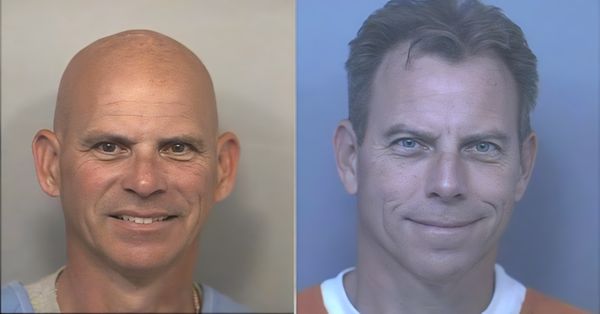Having worked in mining for almost three decades, Betsy Merry has many entertaining stories about what it's like to be the only woman working in a crew of burly blokes in some far-flung location.
She recalls being sent to supervise construction at a remote gold project in Western Australia's Pilbara region around 20 years ago, in an era when the sight of a female engineer on an Australian mine site was still met with genuine surprise.
As there were only shared male facilities, it was decided (not by her) that she would take over the residence manager's digs for three months.
"So I was this very junior engineer who ended up displacing the most senior person on this entire mine site so I could stay in his bedroom with an ensuite because they actually didn't have any set-up whatsoever females," Ms Merry said.
"They also weren't used to having a female engineer there to oversee stuff."
How times are changing
Over the last two decades, the number of women employed full time in the mining industry nationally has jumped from 8,700 in August 2002 to 45,000 in August 2022, according to Australian Bureau of Statistics data.
The future looks particularly bright in Western Australia, where the McGowan government's decision to slash course fees to plug the skills shortage has driven a spike in the number of women studying and undertaking apprenticeships in mining over the last three years.
Across the publicly funded vocational education and training sector, there were 1,689 enrolments by women in engineering and mining reported to the end of August 2022, up 50 per cent from 1,130 reported in the same period before the pandemic hit in 2019.
In the 12 months to July 31, there were 831 female apprentices and trainees commencing in the metals, mining, manufacturing and services industries, up more than 91 per cent from 434 in 2019.
And while there is still a long way to go to achieve gender parity at the boardroom level, there has also been a positive shift in the number of women stepping into senior roles at some of Australia's biggest mining companies.
Ms Merry is now the Principal Project Manager at global miner WSP, and she is among a growing number of women working at the top levels of mining in Australia.
Ms Merry, South32 chief financial officer Katie Tovich and Gold Fields executive Kelly Carter have shared their advice for future generations, and on what needs to happen to get more women working in the male-dominated profession.
Quotas 'work against women'
Ms Merry said increasing the number of women working in the industry will certainly help to reduce incidents of sexual harassment, assault and other appalling behaviours that were uncovered in a scathing review of the state's fly-in, fly-out sector.
"My view is that when a woman gets promoted, you hear people say 'Oh, well, she's in that position because she's female' and no one talks about whether she actually has the right skills for the job.
"I actually think quotas work against women. I don't care if it's all men, if they're the best person for the job. It needs to be based on merit.
"There's a big push to get women into mining at the moment but I just hope it's for the right reasons."
Ms Merry said more onus needed to be placed on developing females at the start of their career and getting girls interested in STEM from a young age.
She takes it upon herself to go into her daughter's school to talk about her career as an engineer to help open young people's eyes about the opportunities that exist in mining.
"My daughter is about to start year seven and I feel like whatever she wants to do, she'll be able to achieve it because there's such good support now for women wanting to get into any roles in the workforce.
"I actually feel more sorry for my two sons who are going to be told, 'Actually, we are looking for a female for this job'."
Change starts at the top
South32 chief financial officer Katie Tovich said change needed to start at the top and stressed the importance of visible female role models, such as the company's chair Karen Wood.
Females now account for more than a third of the company's board, up from 12.5 per cent in 2015, while 37.5 per cent of its leadership team is female, up from 28.6 per cent.
Other big companies including BHP, Rio Tinto and Newcrest are also tracking in the right direction.
But there's still a long way to go across all levels of the industry, with a ratio of about one woman to every five men.
South32 does not have quotas and has instead committed to the 40:40 Vision to achieve gender balance in executive leadership across all ASX300 companies by 2030.
"We have got a range of metrics in place to achieve that goal and we have made a really positive shift in the last seven years in terms of our senior female leadership," Ms Tovich said.
"Our goal is to ensure that we continue to build that inclusive and diverse culture because there's no question in my mind that the more diverse your workplace is, the better the behaviours are."
Ms Tovich said women also need to back themselves by having confidence in their ability, and stand up to bullies.
"I was terrified when I moved into this role but at the end of the day, you step into the role and you find a way to do it as your authentic self...and you find that you can do it," she said.
"In a previous role I had one really uncomfortable experience, where I would say it was an aggressive, bullying engagement around a large table with a lot of people in the room.
"And my lesson from that is, stand up in yourself in the moment, because other people aren't going to.
"But I would say overall, I have absolutely loved working in the industry and men have backed me the whole way through my career...it's enabled me to work on three continents. It's an awesome career for a woman."
Ms Tovich welcomed the government's decision to support all the recommendations in the Enough is Enough report and said they would help inform the company's strategy to protect women in the workplace.
"The report was absolutely horrendous and shocking for everyone who read it," she said.
"We should be really grateful to the women who showed such courage in shedding light on these issues by putting themselves forward because without that, you don't create change."
The long road ahead
Kelly Carter, who was the first female vice president at Gold Fields, said the "absolutely horrifying" accounts from women in the report has been a "huge wake up call" for the industry.
"The initial shock and realisation that things are so much worse than we had thought has now passed and it is now an opportunity for sustained action," she said.
"Looking at my own organisation, I think that we are doing a lot and we're responding in a really multifaceted way...but I think it's important to recognise that there are no quick wins with this."
Ms Carter, who also chairs the Gold Industry Group, said she had noticed a significant increase in the number of women in senior operational roles over the 15 years she has worked in mining, but feels the pace has been slow, with a glaring lack of females in chief executive officer roles.
Data from Chief Executive Women shows just six per cent of chief executives at ASX300 companies are female and just two of them, Meg O'Neill (Woodside) and Amanda Lacaze (Lynas Rare Earths), work in the mining and resources industry.
"I think there is still a lot of work to be done and I don't think we can assume it will continue under its own steam; it requires continuous action by organisations and a strong leadership position," Ms Carter said.
Ms Carter said she had become "normalised" to often being the only woman in a boardroom full of men.
"But I think that is something to be aware of, because the point at which you stop challenging that and stop questioning whether or not that is representative of our workforce, and our society, it's a real issue.
"I think it's important when you're in that position to be saying, 'How do we change this, so room looks different in five years time?'."
Flipping gender roles on their heads
Ms Carter said the industry, and society in general, needs to get better at accepting that women can excel in their careers while also having a family.
The mother of two has a "non-traditional model" at home, where her husband has stepped out of work and into full-time study to take on the "lead carer responsibility".
"My observation is that as a senior female in this industry, you constantly question whether you're contributing in the right way at home...when I don't see my male colleagues having to question that," she said.
"I go to a mine site and get asked, 'Who is looking after your kids?' and I say 'Well, I have left them chained to the front fence, what do you think?'
"But I don't ever see those types of those conversations occurring with male colleagues.
"I'm very comfortable with our family arrangements and I think it really benefits my children to not only have a really strong female role model and to be able to see me participating fully in a male-dominated industry.
"But also, on the flip side, to have a fantastic male role model at home that is providing that primary care to them, so it's just flipping things on their heads a little bit...so when they become adults, they're not looking at everything through that traditional model."
Getting the balance right
Ms Merry has worked part-time for the last 17 years, since having her children.
"I tell people I made a choice to have children, I want to be there for them. But I also made a choice to be a civil engineer and work in mining, and I want to be successful there as well.
"So it's just getting that balance right...and I think the biggest thing for me has just been flexibility. You can't just expect your work to be flexible. You need to be flexible as well."
Ms Tovich's children have flown the coop now, but she could not have got to where she is without a supportive husband, family and friends.
"With both of us working, I think one of the real lessons for me, which I took way too long to learn was, it's okay to ask for help," she said.
"The other piece of advice I have is to get okay with messy; women like to do everything well, but sometimes you're not going to, and that's okay...you will know how to prioritise things and what's important to you."







